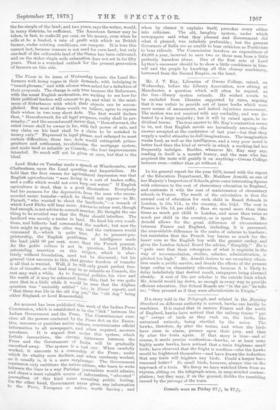An account has been published this week of the Indian
Press Commission, which is established to be the "link" between the Indian Government and the Press. The Commissioner exer- eises all the powers conferred. by the Press Act on the Execu- tive, censures or punishes native editors, communicates official information to all newspapers, and when required, answers questions. It is argued thatunder this system, which forbids favouritism, the chronic bitterness between the Press and the Government of India will be gradually i smoothed away. The system s a bad one. When carefully
-worked, it amounts to a censorship of the Press ; under which its vitality soon declines, and when carelessly worked, as it usually is, it is a mere surplusage. The Government repression only embitters the native editors, who learn to write between the lines in a way Parisian journalists would admire, and closes a most valuable source of information, "educated" Journalism of this kind never revealing public feeling. On the other hand, Government never gives any information to the Press, European or native, worth having ; and
when by chance it explains itself, provokes every editor into criticism. The old, haughty system, under which newspapers said what they pleased and Government did what it pleased, was infinitely preferable ; but the present Governors of India are as unable to bear criticism as Positivists to bear ridicule. The Commission involves an expenditure of 24,000 a year, incurred to save two or three men from a little perfectly harmless abuse. One of the first acts of Lord Lytton's successor should be to show a little confidence in him- self and the people by knocking all this clumsy machinery, borrowed from the Second Empire, on the head.


































 Previous page
Previous page